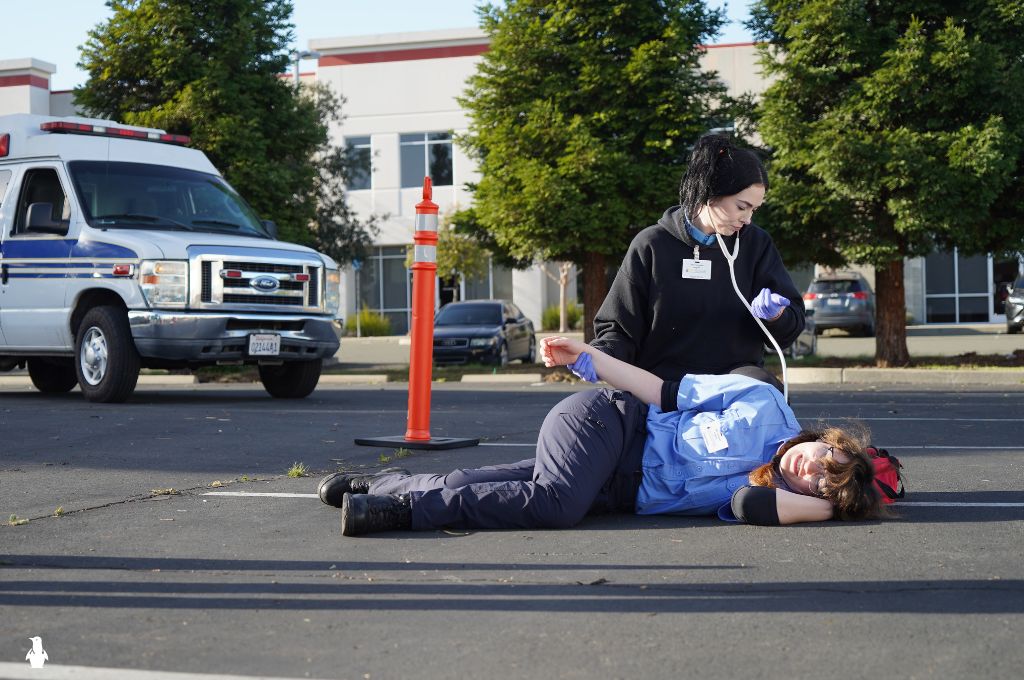An EMT certification opens the door to fulfilling careers beyond the traditional emergency medical services (EMS). With the growing demand for healthcare professionals, there has never been a better time to explore these alternate paths. We’re here to guide you through a variety of career paths with an EMT Certification, along with practical tips and real-life stories to inspire your next career move.
The Versatility of an EMT Certification
An EMT certification is more than just a ticket to working in emergency medical services. It equips you with a unique set of highly valued skills in various healthcare and related fields. From providing critical care under pressure to mastering medical terminology and procedures, the training you receive as an EMT prepares you for diverse roles. Additionally, the healthcare sector’s increasing complexity and demand for skilled professionals mean that your EMT certification can serve as a springboard to numerous rewarding careers.
Traditional EMT Roles and Responsibilities
Before jumping into alternate career paths, let’s revisit an EMT’s traditional roles and responsibilities. EMTs are often emergency emergency responders, providing critical care and life-saving interventions. Their duties include:
- Assessing patients’ conditions and determining necessary medical procedures.
- Administering first aid, CPR, and other emergency treatments.
- Transporting patients safely to medical facilities.
- Communicating with other healthcare professionals to ensure continuity of care.
These fundamental skills are transferable to many other careers, making an EMT certification a versatile asset.
Exploring Alternate Career Paths for EMTs
Emergency Room Technician
One logical step for EMTs is transitioning to an Emergency Room (ER) Technician role. ER Technicians work alongside doctors and nurses in hospital emergency departments, providing care to patients. They perform tasks such as drawing blood, setting up IVs, and preparing patients for examinations. The fast-paced and high-pressure environment of an ER is similar to that of EMS, making it a natural fit for EMTs.
Wilderness EMT
For those who love the great outdoors, becoming a Wilderness EMT might be the perfect career. Wilderness EMTs provide medical care in remote and challenging environments where traditional medical facilities are unavailable. They work with outdoor adventure companies, search and rescue teams, and in remote medical clinics. This role combines medical skills with outdoor survival knowledge, offering a unique and exciting career path.
Medical Device Sales
If you have strong communication skills and a knack for sales, a career in medical device sales could be a rewarding option. Medical device sales representatives educate healthcare providers on the latest medical technologies and devices, helping them make informed purchasing decisions. Your EMT background gives you an edge in understanding the technical aspects of medical devices and their practical applications in patient care.
Healthcare Administration Roles
EMTs with an interest in the administrative side of healthcare may find fulfilling careers in healthcare administration. Roles such as healthcare manager, clinical coordinator, or patient care coordinator involve managing healthcare facilities, overseeing staff, and ensuring efficient delivery of care. Your firsthand experience in patient care provides valuable insights into the operational needs of healthcare organizations.
Becoming a Paramedic
For those who want to deepen their medical knowledge and skills, advancing to a paramedic position is a natural progression. Paramedics have more extensive training than EMTs and can perform advanced medical procedures such as administering medications and intubating patients. The increased responsibility and scope of practice make this a rewarding career choice for those passionate about emergency medicine.
Volunteer Opportunities and Their Benefits
Volunteering is another avenue where EMTs can apply their skills while making a difference in their communities. Volunteer roles in organizations such as the Red Cross, community health clinics, and disaster response teams offer valuable experience and networking opportunities. Volunteering can also be a stepping stone to paid positions and allow you to explore different areas of interest.
Educational and Professional Requirements for Each Alternate Job
Each of these alternate career paths comes with its own set of educational and professional requirements. While your EMT certification provides a strong foundation, additional training or certifications may be needed. For example:
- Emergency Room Technician: Additional certifications in phlebotomy or EKG might be beneficial.
- Wilderness EMT: Specialized training in wilderness medicine and survival skills is required.
- Medical Device Sales: A background in sales or business and product-specific training can be advantageous.
- Healthcare Administration: Higher-level positions often require healthcare administration or business management degrees.
- Becoming a Paramedic: Completing a paramedic training program and obtaining licensure is necessary.
- Volunteer Opportunities: While specific volunteer roles may have unique requirements, your EMT certification will generally be highly valued.
Tips for EMTs Considering a Career Change
Networking
Building a strong professional network is crucial when considering a career change. Attend industry conferences, join professional associations, and connect with individuals in your desired field. Networking can open doors to new opportunities and provide valuable advice and support.
Additional Training and Professional Development
Investing in further education and training can enhance your qualifications and make you more competitive in the job market. Look for certifications, workshops, and courses that align with your career goals. CALRegional offers a variety of healthcare training programs that could pair well with your EMT certification.
Leveraging Your EMT Skills
Don’t underestimate the value of the skills you’ve gained as an EMT. Highlight your ability to remain calm under pressure, your strong communication skills, and your experience in patient care. These are highly transferable skills that can set you apart in any field.
Take Action
Your EMT certification is a powerful tool that opens up possibilities beyond traditional EMS roles. Whether you’re drawn to the fast-paced environment of an emergency room, the adventurous life of a wilderness EMT, or the strategic world of healthcare administration, countless opportunities await you. By leveraging your existing skills, seeking additional training, and connecting with professionals in your desired field, you can successfully transition to a fulfilling new career. Explore these options, take action, and unlock your full potential with your EMT certification. Interested in becoming an EMT? Give us a call today!
